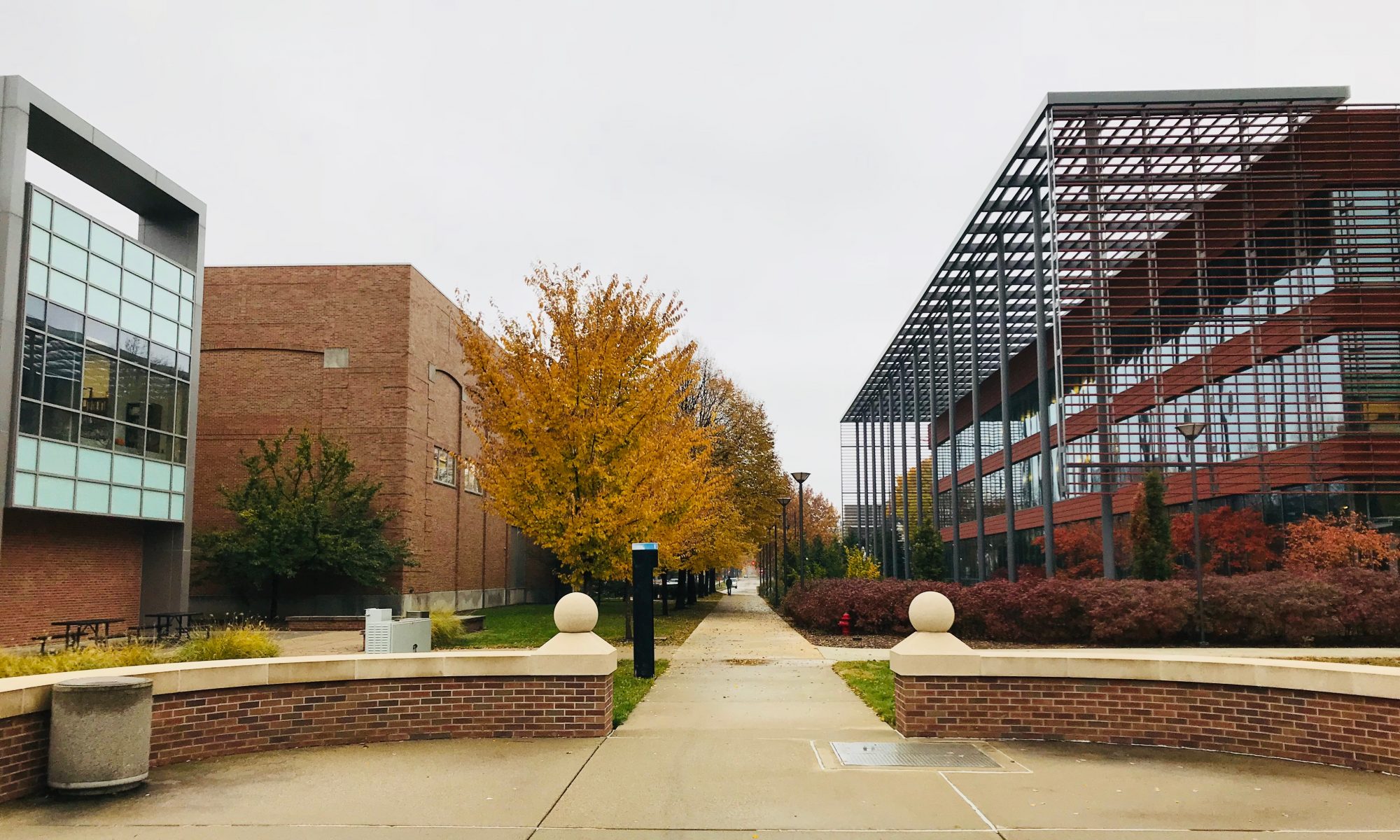UIUC (2016-present)
-
-
- ECE 210- Analog Signal Processing
- Analog signal processing, with an emphasis on underlying concepts from circuit and system analysis: linear systems; review of elementary circuit analysis; differential equation models of linear circuits and systems; Laplace transform; convolution; stability; phasors; frequency response; Fourier series; Fourier transform; active filters; AM radio. Course Information: Credit is not given for both ECE 210 and ECE 211. Prerequisite: ECE 110 and PHYS 212; credit or concurrent registration in MATH 285 or MATH 286. Class Schedule Information: Students must register for one lab and one lecture section.
- ECE 444 – IC Device Theory & Fabrication
- Fabrication lab emphasizing physical theory and design of devices suitable for integrated circuitry; electrical properties of semiconductors and techniques (epitaxial growth, oxidation, photolithography diffusion, ion implantation, metallization, and characterization) for fabricating integrated circuit devices such as p-n junction diodes, bipolar transistors, and field effect transistors. Course Information: 4 undergraduate hours. 4 graduate hours. Prerequisite: ECE 340.
- ECE 340 Semiconductor Devices
- Modern device electronics: semiconductor fundamentals including crystals and energy bands, charge carriers (electrons and holes), doping, and transport, (drift and diffusion); unipolar devices with the MOS field effect transistor as a logic device and circuit considerations; basic concepts of generation-recombination and the P-N junction as capacitors and current rectifier with applications in photonics; bipolar transistors as amplifiers and switching three-terminal devices. Course Information: Prerequisite: ECE 210; PHYS 214; credit or concurrent registration in ECE 329.
- ECE 329 Fields and Waves I
- Electromagnetic fields and waves fundamentals and their engineering applications: static electric and magnetic fields; energy storage; Maxwell’s equations for time-varying fields; wave solutions in free space, dielectrics and conducting media, transmission line systems; time- and frequency-domain analysis of transmission line circuits and Smith chart applications. Course Information: Prerequisite: ECE 210.
- ECE 210- Analog Signal Processing
-
- ECE 304 Photonic Devices
- Introduction to active and passive photonic devices and applications; optical processes in semiconductor and dielectric materials including electrical junctions, light emission and absorption, and waveguide confinement; photonic components such as light emitting diodes, lasers, photodetectors, solar cells, liquid crystals, and optical fiber; optical information distribution networks and display applications. Course Information: Prerequisite: PHYS 214.
- ECE 304 Photonic Devices
-
Yale (2008-2016)
EENG 200 Introduction to Electronics
This introductory course has no pre-requisites beyond high school calculus and is designed to help students to:
-
-
- Understand DC and AC characteristics of basic electric circuits, including both passive and active varieties, as building blocks of analog systems
- Understand the basic concepts of some semiconductor devices (diodes, bipolar junction transistors, MOSFETs, op amps) for analog and digital applications
- Analyze, design, build, and test moderately sophisticated electronic circuits
- Be able to take more advanced electronic circuits-related courses with minimum difficulty.
-
EENG 406 / ENAS 806 Photovoltaic Energy
Electricity from photovoltaic solar cells is receiving increasing attention due to growing world demand for clean power sources. This course primarily emphasizes: device physics of photovoltaics, statistics of charge carriers in and out of equilibrium, design of solar cells, and optical, electrical, and structural properties of semiconductors relevant to photovoltaics. Two laboratory sessions and a final project will aid students in understanding both the applications and limitations of photovoltaic technology. The main objectives of this course are:
- To equip students with the necessary background and analytical skills to understand and assess established and emerging photovoltaic technologies
- To familiarize students with the diverse range of photovoltaic materials and to connect materials properties to aspects of cell design, processing, and performance
EENG 401 / APHY 321 / ENAS 986 Semiconductor Silicon Devices and Technology
This is a theory/laboratory course for students whose interests range from semiconductor devices to IC technology to circuit design, especially those who would like to try their hands at semiconductor Si device fabrication and characterization.
The theory part will cover the principles of semiconductor devices, their design groundrules, and their fabrication science and technology.
The laboratory part is intended to illustrate the fundamentals of semiconductor processing and device characterization. Experimental devices, including Ohmic contacts, Schottky diodes, PN junctions, solar cells, MOS capacitors, and MOSFETs, will be fabricated and measured by students.
EENG 408/ ENAS 509 Electronic Materials
The performance of all systems, circuits, and devices- whether for computation, communication, sensing, or energy conversion- are limited by the properties of their constituent materials. Future breakthroughs in solid state device technology will likely originate from advances in our ability to control the structure and properties of electronic materials. The objectives of this course are to provide a working knowledge of materials science concepts encountered in microelectronics and optoelectronics and to help students connect materials structure with processing techniques, properties, and device performance.
